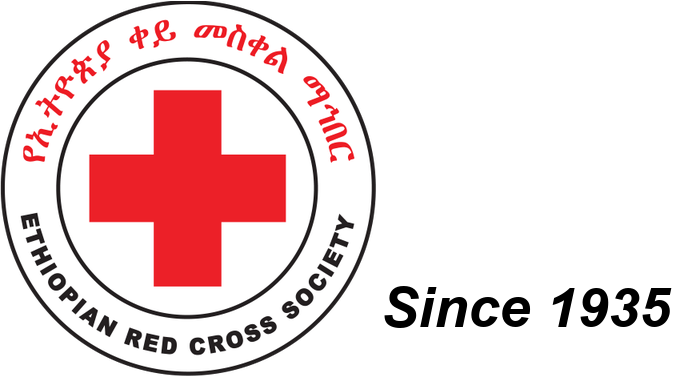Life on the Line: How Ambulance Services Revived Lives in Enderta, Tigray
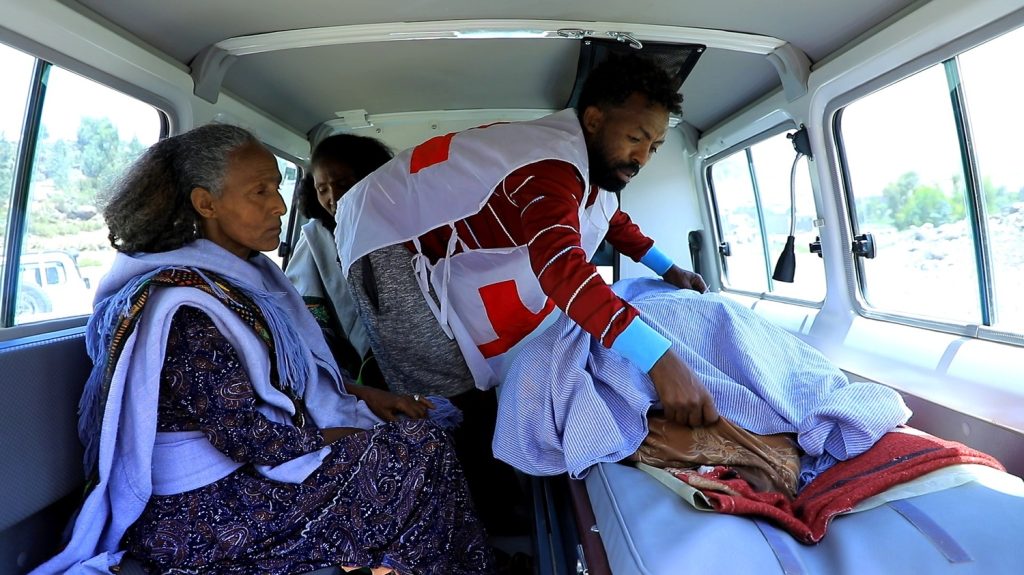
In the war-affected landscapes of South Eastern Tigray, access to emergency healthcare has often been a matter of life and death. For years, the people of Enderta, Deguwa Temben, Hagere Selam, Hintalo districts – including Mekele endured the absence of reliable ambulance services. Mothers in labor, critically ill patients, and accident victims faced long, dangerous journeys – or worse, no journey at all – to reach healthcare facilities in time.
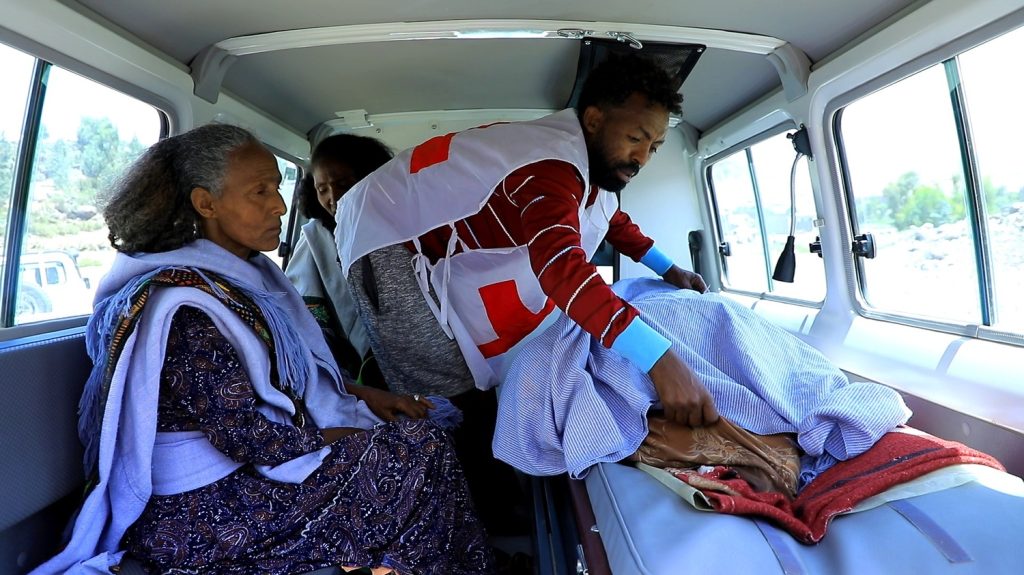
The Ethiopian Red Cross Society (ERCS), with the support of the Finnish Red Cross (FRC), is reviving – bringing with it hope, relief, and life-saving care. Through the Tigray Bilateral Emergency Response Operation Project, running from April 2024 to June 2025, the partnership is restoring emergency health services, strengthening water access, improving protection measures, and supporting livelihoods for conflict-affected populations.
Before the war, the ERCS Enderta district branch office had six fully operational ambulances, serving about 600 people every month. When fighting erupted, three were destroyed, and the rest were left struggling without fuel or maintenance. These remaining ambulances had to cover 24 kebeles, a near-impossible task.
Fuel shortages forced ERCS to limit services to only the most urgent cases, leaving many without help. Patients had to pay 3,000–4,000 Birr for private transportation – an expense most families could not afford.
With FRC’s intervention, two ambulances were repaired, fuel and running costs were covered, and services resumed. The difference was immediate – within months, ambulance services were reaching 200 people every month in Enderta alone, prioritizing maternal health, emergencies, and critical referrals.
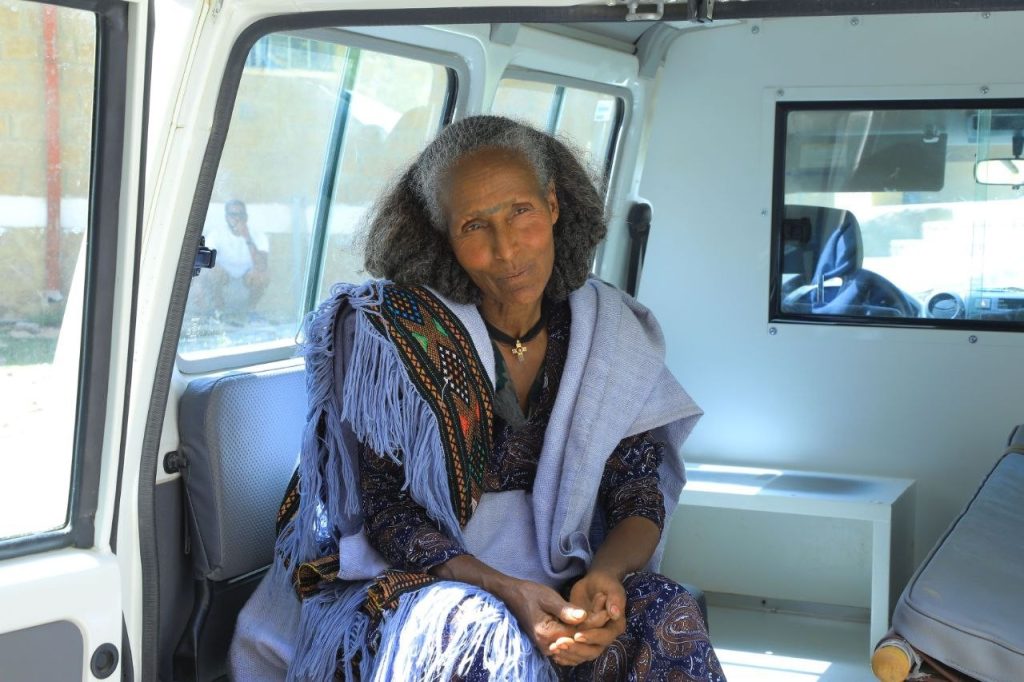
“My name is Abeba Nigus. I live in Shiguwala village, Arato kebele, Enderta district. The lady about to give birth is my daughter.
We called the ambulance, and it came quickly. We suffered so much when ambulances stopped due to the war. We couldn’t get medicine, transport was cut off, and everything was closed. But now, I am so happy that the Red Cross has returned with ambulance services.
May God bless you and give you glory. Today, I believe my daughter will give birth safely, and we will go home with a healthy baby.”
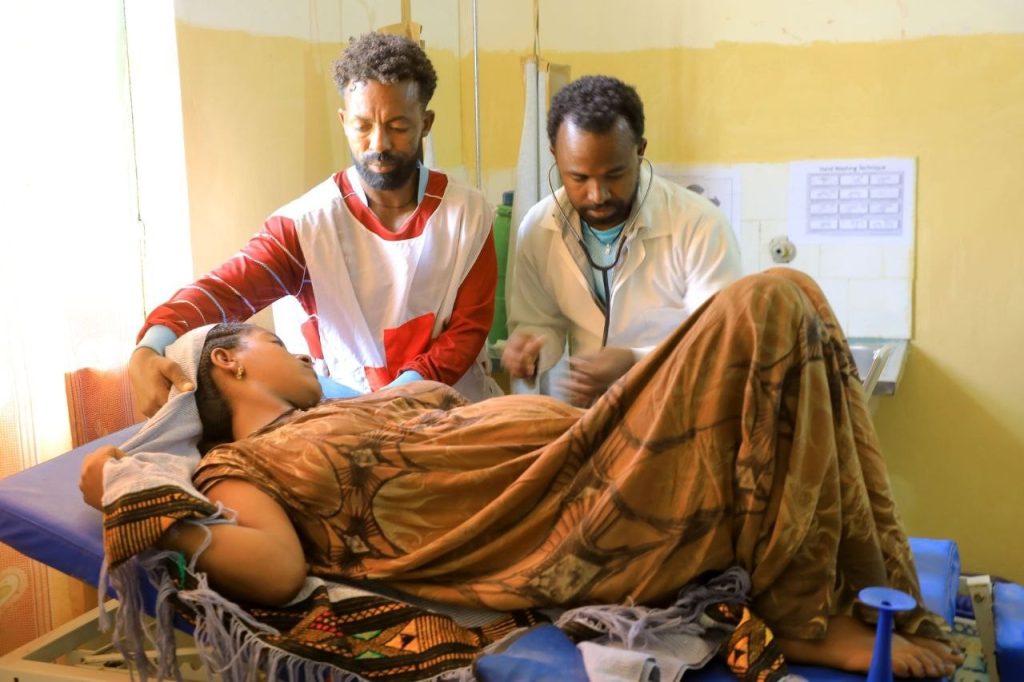
Dade Hagos Hailu has been driving Red Cross ambulances for over five years in Enderta district. He remembers the war years as a time of near-impossible choices.
“There was no fuel, and the roads were unsafe. We didn’t stop entirely, but we could only serve the most urgent cases until our fuel ran out.
Most of the time, we transport mothers in labor. Sometimes, by the time we reach them, they have already given birth because the roads are so bad. Some even deliver in the ambulance on the way to the health center. When that happens, we need supplies for delivery, but often we don’t have enough. We also sometimes run out of oxygen and have to rush the patient to the nearest facility.
Despite the challenges, when people see the Red Cross ambulance, their faces light up. Wherever we go, people welcome us with joy and love because they know we are here to care for them.”
On the day we met Dade, he had been called to Shiguwala village to transport Abeba’s daughter, who was in labor, to Semiha Health Center in Arato kebele. As he spoke, she was already in the maternity room, preparing to give birth.
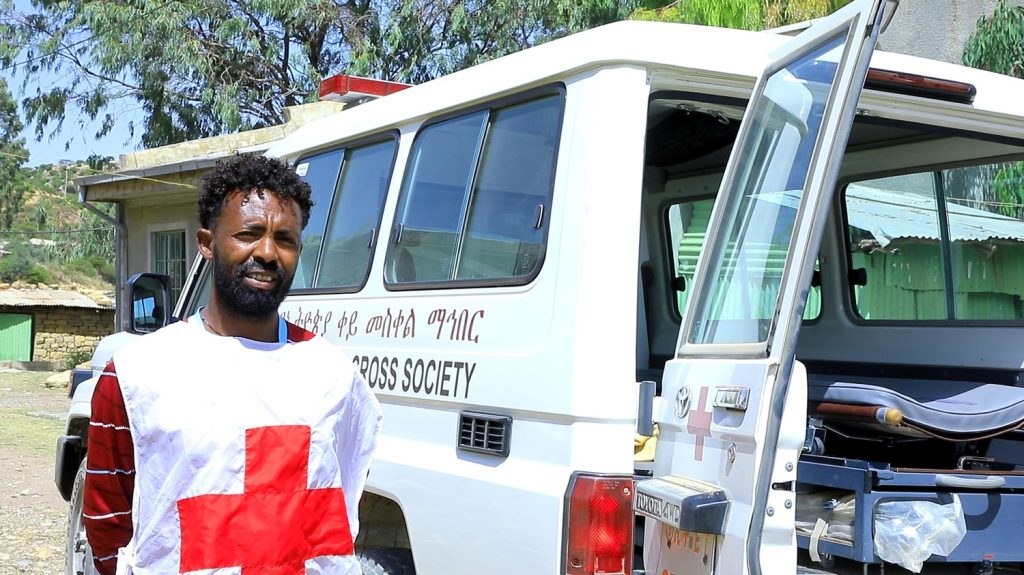
“I am proud to work for the Red Cross. When I bring someone out of danger and see them get medical care – or when a mother gives birth safely – it fills me with happiness. I just hope we continue to get the support we need to keep serving every call.”
Across the four districts, the project maintained six ambulances serving 8,234 people – including 244 persons with disabilities – and deployed eight additional ambulances to expand coverage. Fifty-nine healthcare workers also received training in mental health, psychosocial support, disability inclusion, and first aid.
In Ethiopia, an ambulance is more than just a vehicle – it is a lifeline. For a mother, especially in rural areas, a functioning ambulance means giving birth in a safe environment rather than at home without assistance. With continued support from partners like the Finnish Red Cross, these lifesaving services can keep reaching villages and towns, ensuring that no mother, child, or patient is left behind in a moment of crisis.
In the words of Abeba, as she waited to meet her newborn grandchild:
“We are happy again. We can breathe again. And it is because the Red Cross came back to our roads.”
